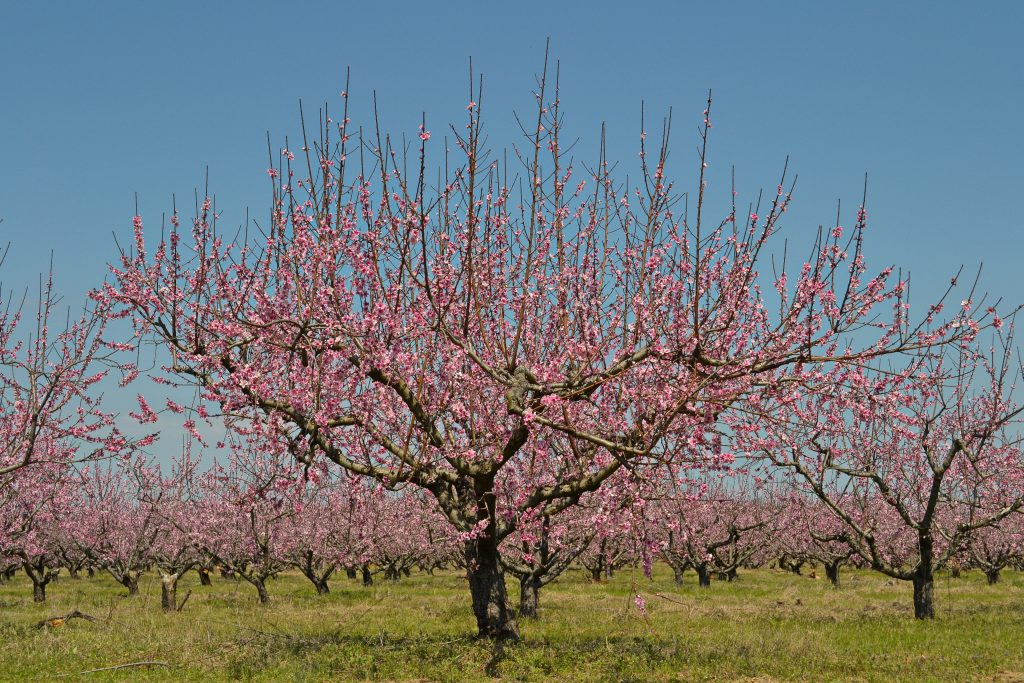By Clint Thompson
The impact on Georgia peaches from two March freeze events is still under review, though trees were negatively affected. There was no way they couldn’t have been, especially with the unseasonably warm temperatures in February.

“It’s been bad as far as the cold. It’s not what we need, it’s what I was afraid was going to happen. Everything we had going on early, it got warm, and everything’s pushed pretty quick,” said Phil Brannen, University of Georgia Cooperative Extension fruit disease specialist, after the second freeze that occurred during the week of March 20. “I don’t know how much damage we have sustained, but I do know we’ve sustained damage on peaches. I hadn’t looked at any except for what we have locally at our horticulture farm, but the damage is significant on the varieties that we have there.”
According to the University of Georgia Weather Network, the average daily maximum temperature at the UGA Horticulture Research Farm in Watkinsville, Georgia from Feb. 1 to Feb. 28 was 65 degrees Fahrenheit (F), nearly 4 degrees higher than 2022 (61.6 F) and almost 10 degrees than 2021 (56.1 F). The warm temperatures helped trees mature sooner than normal, which led them vulnerable to freeze events.
The low temperature at the same site dropped to 26 F on March 15. That started the damage, which was followed a week later by the second freeze event.
“The earlier freeze that we had did pretty significant damage on peaches in middle Georgia then. This one (during the week of March 20) was actually much lower as far as temperatures,” Brannen said. “I think it’s going to be pretty bad. I talked to a guy in Alabama, and he thought they were completely fried over there as far as peach production goes.
“This was pretty bad timing.”









